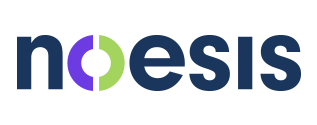Neuroscience informs the change work we do with clients and brings practical tools to common challenges we find ourselves helping to resolve. The solution comes down to equipping leaders with skills in managing what their brain needs – and what others’ brains need – during times of change and uncertainty. We hear a lot of different sentiments in organizations experiencing change. Here are some common ones:
“It ain’t fair!”
As belts tighten, people are being asked to increase productivity with fewer people. Additional and unwanted responsibilities are dampening motivation and breeding resentment and conflict among employees. Critical to note is this situation rattles our brain’s need for Fairness in order to fully engage. Leaders can learn how to create an experience of fair exchange and dial down the powerful emotional response that occurs when a sense of Fairness is breached. The result: people can shift back to focusing on the tasks at hand.
“Think outside the box!”
Companies are needing to be innovative more than ever – yet have minimal resources available to come up with creative solutions. Additionally, when we are busy and working through change, our brains prefer to hunker down into comfortable old ways of doing things. Leaders who know how to sustain a sense of social SAFETY on their teams will find their people are willing and able to collaborate and share new thinking, leading to new and innovative solutions.
“What does your gut say?”
With market volatility and less confidence about the future, the spotlight is on those making the decisions. When we are stressed and distracted and chasing through each day, we miss important data and cues critical for accurate decision making. This additional information comes to us in the form of insights, fed by the brain’s connections throughout the body, and requiring a quieter, more mindful brain in order to ‘hear’ them. Leaders who know how to be more mindful during their day, will make the best decisions. Period.
“I haven’t been feeling well.”
The uncertainty of job security, additional responsibilities and pressure to demonstrate worthiness ramps up stress levels to the point that performance and focus diminishes. Sleep quality plummets and sickness and absenteeism rises. Poor health = poor performance. Leaders love Prof. Daniel Siegel’s practical dashboard for optimizing performance, and can maximize clear thinking and well-being – required to go the distance of this difficult period.
“How do I lead change well?”
(Most leaders don’t know.) There are so many change models out there, that label the various stages people go through. But most leaders have never been trained in what leading through change should actually sound like. Our brains are extremely socially sensitive, especially in times of change. Knowing how to interact with others by giving people what their brains need to feel less distracted and fearful can make or break the success of any change initiative.
Noesis delivers neuroleadership consulting and training to organizations handling everyday change and major transformation initiatives. We help our Fortune 500 clients scientifically improve leadership.


Recent Comments